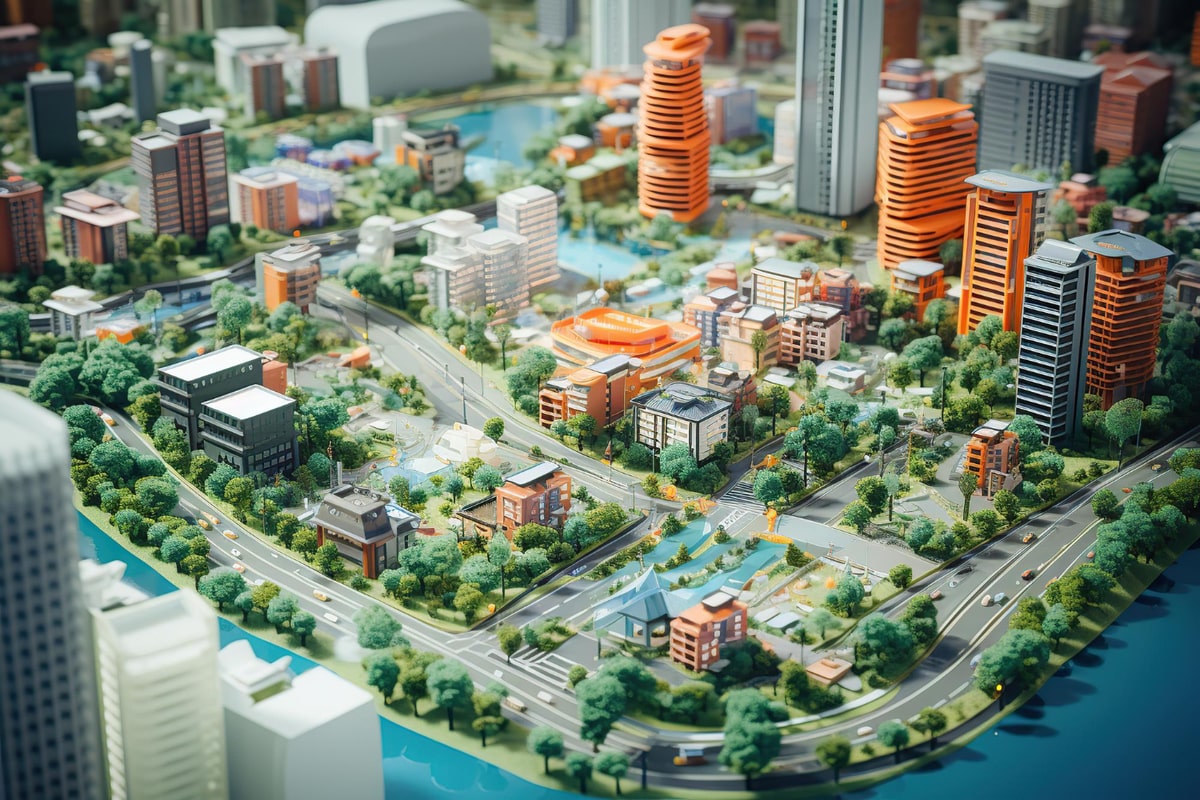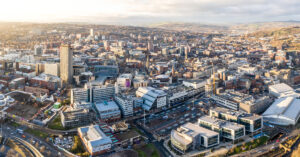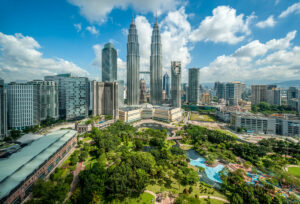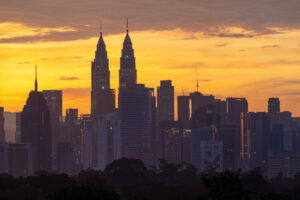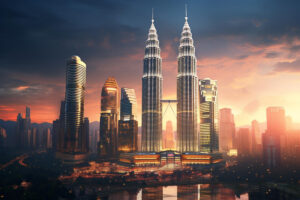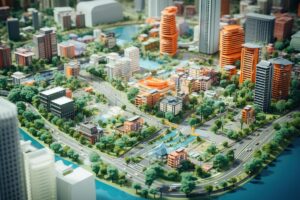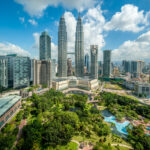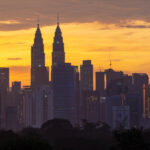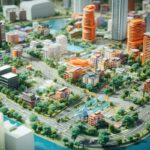As Malaysia strides forward in the realm of urban innovation, its approach to future cities is particularly intriguing. This unique approach is shaping the evolution of urban life, not only in Malaysia but setting a precedent globally.
As technological advancements and sustainable practices become increasingly crucial, cities are also evolving to meet the future needs of society. Malaysia’s role in this transformative trend is significant, as it leads the way in developing smart, efficient, and environmentally friendly urban spaces.
This article will delve into the concept of future cities, highlighting Malaysia’s innovative steps in this direction.
What are Future Cities?
Future cities, synonymous with smart cities, are urban areas that integrate cutting-edge technology and innovative design to elevate residents’ quality of life.
These cities are the epitome of sustainable development, connectivity, and efficiency, fostering a harmonious and integrated living environment.
The essence of these cities lies in harnessing technology and data to enhance their overall performance, making them more sustainable, liveable, and economically viable.
Furthermore, they strive to improve access to essential services, optimise resource utilisation, and minimise environmental impact, ensuring long-term sustainability.
Read More: Smart City in Urban Town Planning: Is It Coming Soon to Malaysia?
Key Features of Future Cities
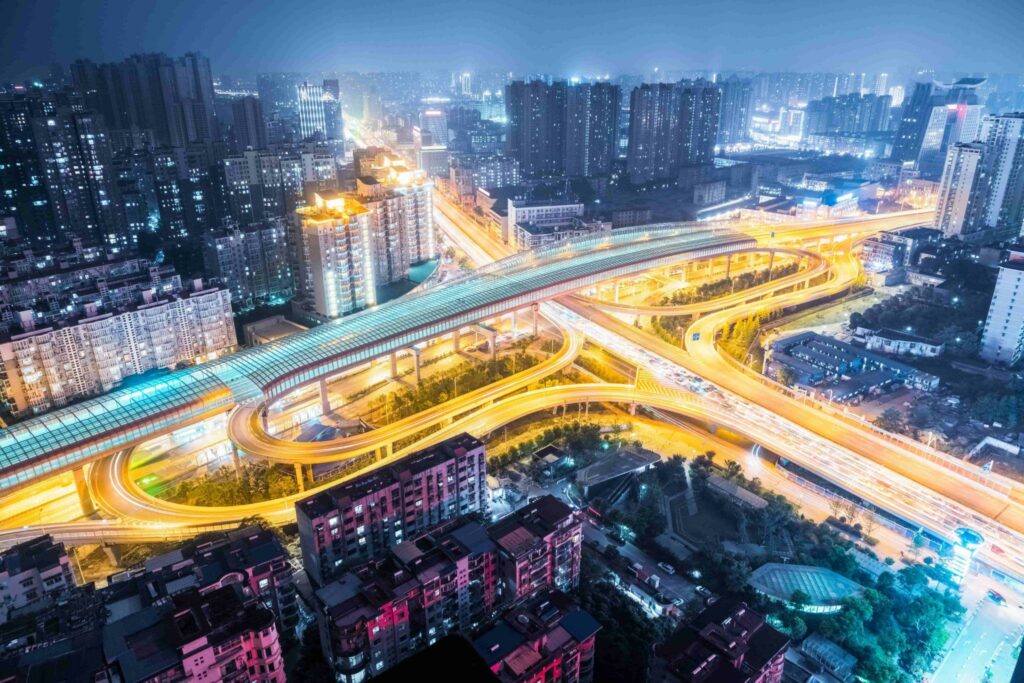
1. Smart Infrastructure
Firstly, the foundation of future cities is a blend of digital and physical infrastructure. This encompasses the use of IoT (Internet of Things) devices for efficient city management, smart grids, intelligent transportation systems, and extensive Internet connectivity.
2. Sustainability
Moreover, sustainability is a cornerstone of future cities. This is manifested through renewable energy sources, energy-efficient building designs, innovative waste management systems, and efficient public transit networks.
3. Data-Driven Decision Making
Additionally, these cities employ extensive data collection and analysis. Real-time data from sensors and monitoring systems enhances resource allocation, traffic management, energy conservation, and public safety.
4. Empowered Citizens
Lastly, in these cities, citizen engagement and empowerment are emphasised. Residents have opportunities to engage in decision-making processes, access public services, and contribute to the city’s development through digital platforms and mobile apps.
Read More: Living in the City or Suburbs is Better in Malaysia?
Malaysia’s Vision for Future Cities
Malaysia is fully committed to the concept of future cities and is actively working towards its realisation. Indeed, the government has recognised the importance of sustainable urban development and has initiated several projects to transform major urban centres into smart, efficient spaces.
Iskandar Malaysia
Iskandar Malaysia, located in the country’s south, is a prime example of Malaysia’s vision for future cities. This ambitious effort aspires to create a sustainable city by focusing on several critical aspects of urban development.
The project’s primary goal is to build a flawlessly connected metropolis by introducing intelligent transport systems and integrated urban planning.
It also prioritises the development of smart infrastructure and green technologies for the well-being of its residents.
Read More: An Introduction to Malaysia’s Sustainable City
Cyberjaya
As Malaysia’s first smart city, Cyberjaya has cemented its position as a hub for innovation, highlighting state-of-the-art technologies. This metropolis encourages research and development, creating an environment suitable for game-changing technical advances.
Thus, this dynamic city functions as a living laboratory for smart urban solutions, focusing on technical advancement and innovation. Features like autonomous public transport, smart street lighting, and intelligent waste management systems are integral to Cyberjaya’s infrastructure.
Forest City
Next, Forest City in Johor Bahru demonstrates how sustainable architecture and eco-friendly urban living can coexist.
This project mixes cutting-edge infrastructure with green spaces to create an environment that prioritises a high quality of life while minimising environmental impact.
Moreover, sustainability is key to Forest City’s design concept. It prioritises green building designs, renewable energy sources, efficient water management systems, and eco-friendly transportation.
By prioritising these characteristics, Forest City hopes to provide its inhabitants with a smart and environmentally conscious place to live.
Benefits of Future Cities in Malaysia
The concept of future cities offers numerous benefits for both citizens and the environment. Here are four key advantages of these cities:
1. Improved Quality of Life
Firstly, future cities prioritise creating a high-quality living environment. With smart infrastructure and efficient public services, residents can enjoy improved mobility, healthcare, education, and a better overall living standard.
2. Sustainable Development
Designed with sustainability in mind, these cities also utilise renewable energy, efficient resource management, and reduced emissions to minimise environmental impact.
3. Economic Growth
Future cities also drive economic growth and attract investment. By attracting businesses and talent through their advanced infrastructure, they create job opportunities and foster economic development.
4. Enhanced Safety and Security
Besides, smart monitoring systems and data-driven decision-making can improve public safety and security. Meanwhile, real-time data analysis enables quicker emergency response, efficient traffic management, and more effective surveillance.
Read More: 10 Most Influential Urban & Town Planners in the World
Future Cities: A Vision for Tomorrow
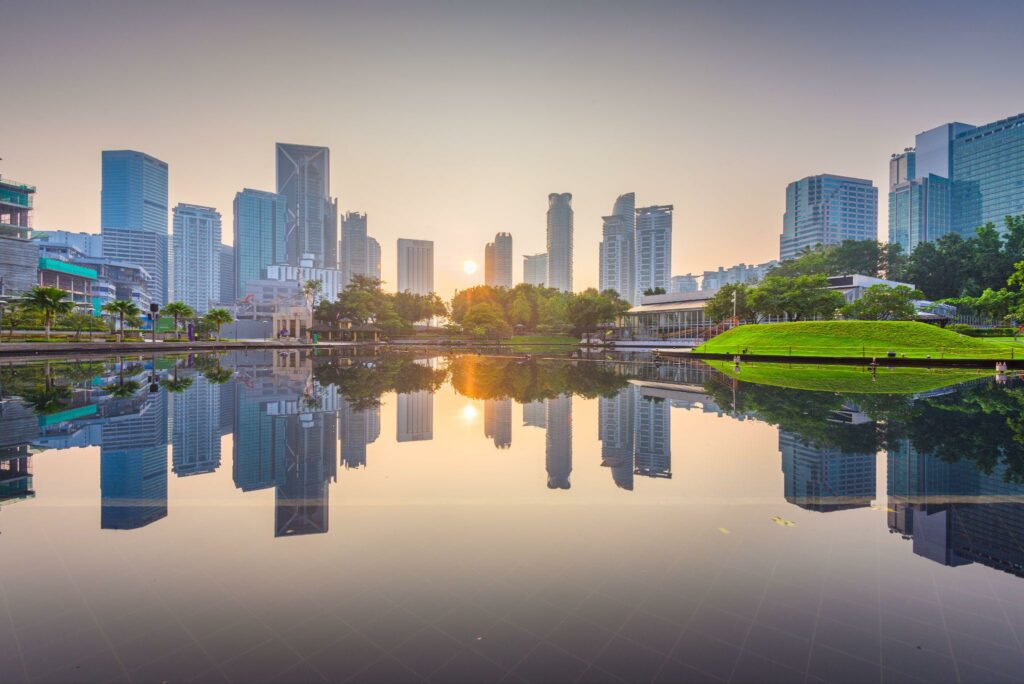
Malaysia’s future cities are transforming the urban landscape, focusing on sustainability, connectivity, and data-driven decision-making. These cities pave the way for a smarter, more liveable environment to come.
Undoubtedly, Malaysia is setting an example for global urban development by embracing innovative technologies and prioritising citizen engagement.
The concept of future cities is more than a buzzword; it embodies a vision for a better, sustainable future for all. These cities in Malaysia signify a paradigm shift in urban development, utilising technology and sustainable practices to create smart, efficient, and eco-friendly environments.
With ongoing investment and commitment, Malaysia is well on its way to becoming a leader in the realm of future cities.
Empower the Future with PEQ Consult
Are you inspired by the concept of future cities and the transformation happening in Malaysia? Take the next step towards creating a greener and more connected tomorrow by partnering with PEQ Consult.
Find out more about our range of services and how we can assist you in building your dream city. Together, we can shape the future of urban living, making it smarter, more sustainable, and better for everyone.
Contact PEQ Consult today to participate in building Malaysia’s future cities!

